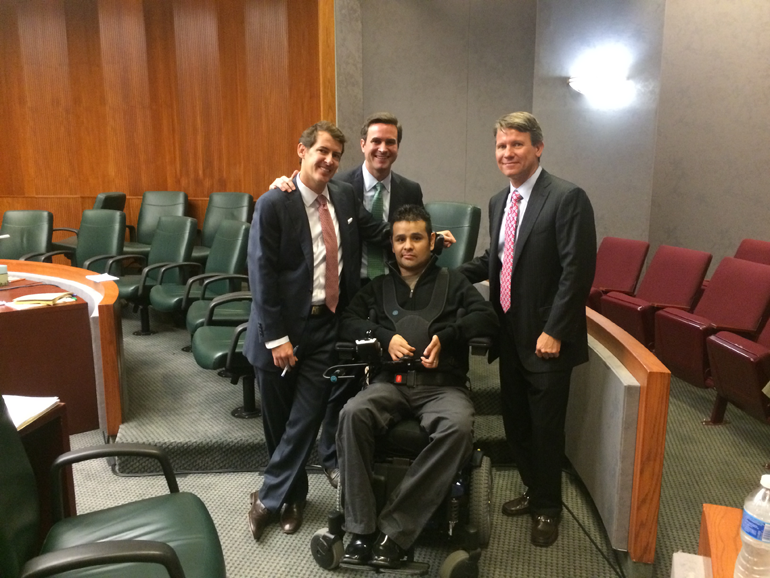Hurricane season spans six months, from June to October, but it’s in the final three that 90 percent of storms occur. With much focus on the devastating power and threat of a storm itself—roaring winds, monstrous storm surge—it’s all too easy to underestimate the dangers that appear in its wake.
In the aftermath of a storm, people who are navigating the disaster-stricken landscape are in survival mode. They’re cleaning up debris, seeking medical help for injuries, and attempting to source food and water. Unfortunately, the threat of catastrophic electrocution injury increases substantially during this time, following the severe winds and flooding brought on by a hurricane. It’s just one more post-storm reality that survivors must take into account.
A Dangerous Landscape
The powerful winds of a hurricane—like Hurricane Ida’s 150-mph sustained gales—can quickly cripple and bring down a power grid. Gusts topple trees and cause energized poles and power lines to break and fall. This leaves power lines exposed overhead, a hazard during hurricane cleanup. It also creates an often hidden threat in the form of downed power lines.
The muddy, opaque nature of floodwaters can easily hide leached hazardous chemicals, dangerous wildlife, and large, sharp objects. And when brought into contact with a live wire, those waters can conduct deadly electrical currents. Individuals and first responders can fall victim to electrocution while wading through the murky waters, whether looking for victims or simply attempting to move from place to place. Tragically, such was the case in Houston following Hurricane Harvey and Eastern North Carolina after Hurricane Florence.
Utility Workers at Risk
Electrical injuries are also a threat as utility workers work to restore power following a storm. These professionals, often from other states, work tirelessly to repair damaged systems. As if this work weren’t dangerous enough, improperly installed generators only add to the risk. Always consult a licensed, qualified electrician before attempting to use a generator in your home. For example, simply connecting a generator to an electrical outlet causes electricity to flow not only to their house, but away from it and back to the grid. This poses a serious danger for utility workers who can encounter unexpectedly live wires as a result.
Electrocution Injury Attorneys
Electrical injury is frequently deadly. And when a victim survives, he or she is almost always left with long term, life-altering injuries like nerve damage and paralysis. Before a natural disaster strikes, refer to these CDC guidelines for information on protecting yourself from a hurricane electrocution injury.
But sometimes, the unthinkable happens. If you or a loved one has been injured as a result of an electrical hazard, we are here for you. Contact Yarborough Applegate to speak with an experience electrocution injury attorney about your options.







